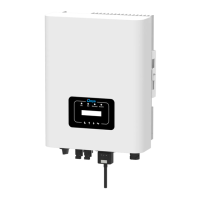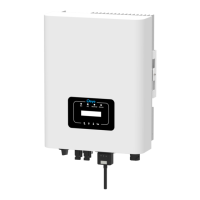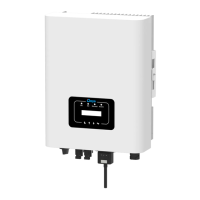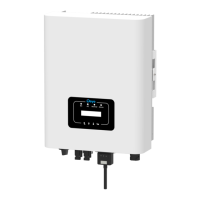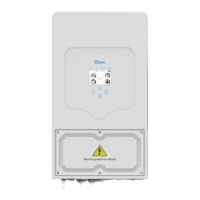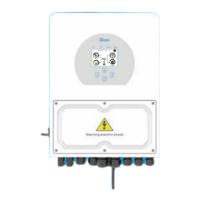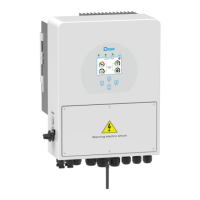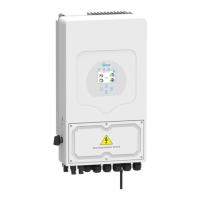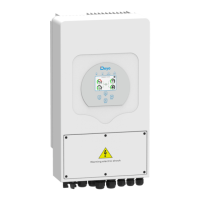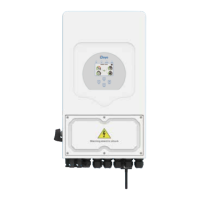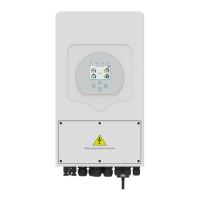Do you have a question about the Deye SUN-3K-G03 and is the answer not in the manual?
Provides guidance on how to effectively read and utilize the manual for inverter operation.
Illustrates the basic components and flow of a grid-connected photovoltaic system.
Describes the external appearance and models of the grid-connected PV inverter.
Lists all components included in the inverter package for user verification.
Details the various safety symbols used in the manual and their meanings.
Provides critical safety guidelines for installation, operation, and maintenance.
Offers important considerations and precautions for safe and correct operation of the inverter.
Presents a visual overview of the inverter's front panel display and indicators.
Explains the meaning of the four LED status indicator lights on the inverter.
Describes the function and usage of the four control buttons on the inverter's front panel.
Details the information displayed on the inverter's two-line Liquid Crystal Display.
Provides criteria and recommendations for choosing a suitable installation site for the inverter.
Details the steps and methods for physically mounting the inverter onto a wall.
Guides on connecting the DC power input terminals to the inverter.
Explains the procedure for connecting the AC power input terminals to the inverter.
Describes the importance and method for proper grounding of the inverter for safety.
Recommends circuit breaker specifications to protect the inverter from overcurrent.
Outlines the setup for wireless remote monitoring of the inverter using Wi-Fi.
Details the process of installing the optional datalogger module onto the inverter.
Refers to external documentation for configuring the datalogger settings.
Provides step-by-step instructions for safely starting up the three-phase string inverter.
Details the required steps for properly shutting down the inverter.
Explains the optional Anti-PID function for repairing PV module degradation.
Guides on setting up and using the zero-export function with an energy meter.
Offers important suggestions and precautions for operating the zero-export function safely.
Explains how to view system load power and energy export on a monitoring platform.
Describes how to navigate and view basic information on the inverter's LCD from the initial screen.
Introduces the main menu structure and its five submenus for system operation.
Displays details about the inverter's software versions, model, and communication addresses.
Details how to access and interpret recorded fault information, including time and error codes.
Explains how to turn the inverter on or off through the menu settings.
Describes the optional setting for PV string voltage and current parameters.
Outlines the submenus available for system, run, protect, and communication parameter configuration.
Covers settings related to time, language, display, and factory reset for system configuration.
Details parameters for running the inverter, requiring an engineer password for access.
Lists protection parameters including voltage and frequency limits, accessible only by engineers.
Allows configuration of communication parameters such as address and baud rate.
Defines key parameters like Fstr, Fstop, RecPT, and RecGra for over-frequency response.
Explains how to select and set parameters for reactive power regulation.
Details the Q(U) mode for reactive power output variation based on grid voltage.
Provides a detailed explanation of parameters used in the Q(U) reactive power mode.
Describes the Q(P) mode where reactive power is controlled by the inverter's active power.
Explains the parameters used for the Q(P) reactive power regulation mode.
Lists all error codes, their descriptions, and troubleshooting steps for inverter faults.
